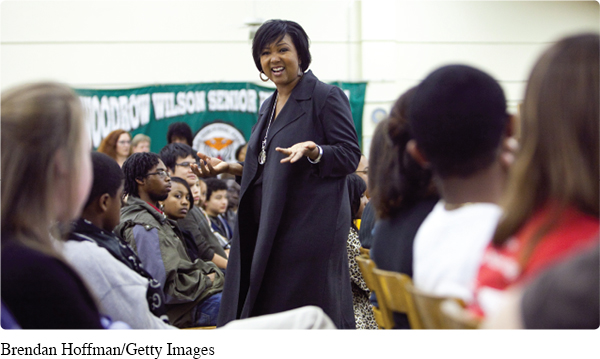Providing Testimony and Stories
As the study about Save the Children and the story of Rokia shows, listeners will pay more attention to a persuasive speech when you present relevant testimony from a person they can relate to or tell a compelling story about your topic. In composing your speech, consider how you can incorporate testimony (the words or experiences of others) or a personal story to make an emotional connection with your audience. In Chapter 14, we discuss how using such stories can help you capture and hold your audience’s interest and attention while delivering your speech. A well-
When I was growing up in the 1960s on the south side of Chicago, I remember being so excited about space exploration! I wanted to be involved! But, there was always just one type of person in earth orbit or in Mission Control. And they did not look like me. Even though, as a country, we would proudly rally and root for the Space Program, so many of us felt as though we were left out. When I did finally fly in space, the first thing I saw from earth orbit was Chicago, my hometown. I was working on the mid-
Dr. Jemison, the first African American woman in space, tells a story that stirs optimism and hope in listeners: that they can overcome obstacles and achieve their dreams just like she did.
Inspiring personal stories like astronaut Mae Carol Jemison’s keep listeners engaged and wanting to know more. They can also inspire hope and motivation in audiences. What kinds of stories do you find the most powerful? How can you work them into your own speeches?
